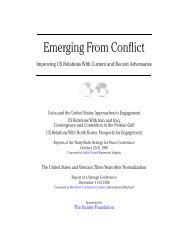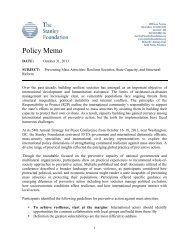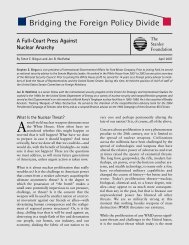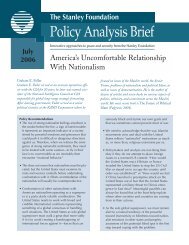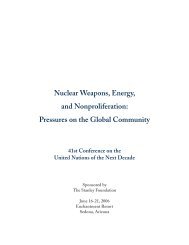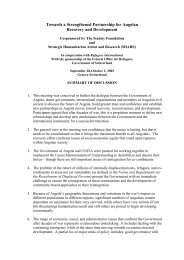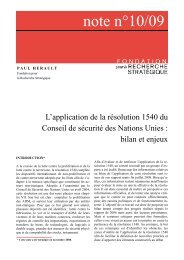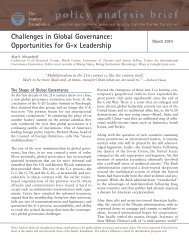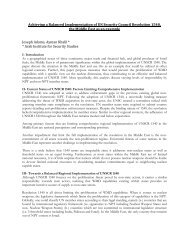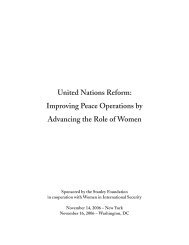444 By Susan Ariel Aaronson and David Deese With a reaction by ...
444 By Susan Ariel Aaronson and David Deese With a reaction by ...
444 By Susan Ariel Aaronson and David Deese With a reaction by ...
- No tags were found...
Create successful ePaper yourself
Turn your PDF publications into a flip-book with our unique Google optimized e-Paper software.
Shell <strong>and</strong> the other oil companies operating in the region (including Chevron,Mobil, Elf, <strong>and</strong> Agip) were widely criticized for their stance of non-interference, whichsome individuals interpreted as tacit support for the Nigerian regime. In the years since,these firms have dramatically changed how they operate in the region, but the localpopulace believes these firms perpetuate poverty <strong>by</strong> continued collusion with corruptofficials at the provincial <strong>and</strong> federal levels. Despite significant changes <strong>by</strong> the Nigeriangovernment to achieve greater democratization <strong>and</strong> transparency, the companies are stillsubject to frequent protests, work stoppages, <strong>and</strong> animosity in the Niger Delta.167Other companies have encountered similar problems in other resource rich developingcountries such as: Chevron in Ecuador, Unocal (now Chevron) in Burma <strong>and</strong> ExxonMobil in Indonesia. Exxon Mobil <strong>and</strong> Unocal have actually been compelled to defendtheir international human rights practices in courts of law. Some activists have arguedthat in countries where human rights abuses are so egregious, the energy firm mustwithdraw (as the Canadian firm Talisman did from Sudan). But a withdrawal is notnecessary good for the local population in such countries. Many workers <strong>and</strong> associatedbusinesses will lose jobs <strong>and</strong> income, <strong>and</strong> the energy company will relinquish financial<strong>and</strong> political leverage to influence the government to act responsibly. Clearly, then, thereis no one right strategy for oil companies confronted with these dilemmas.In response to this qu<strong>and</strong>ary, the U.S. <strong>and</strong> U.K. governments collaborated on aplan to help companies deal with some of the human rights issues related to theiroperations. The Voluntary Principles on Security <strong>and</strong> Human Rights is a set of guidelinesadopted <strong>by</strong> governments, extractive companies <strong>and</strong> human rights NGOs. The VoluntaryPrinciples provide practical guidelines for how companies can protect the safety <strong>and</strong>457



